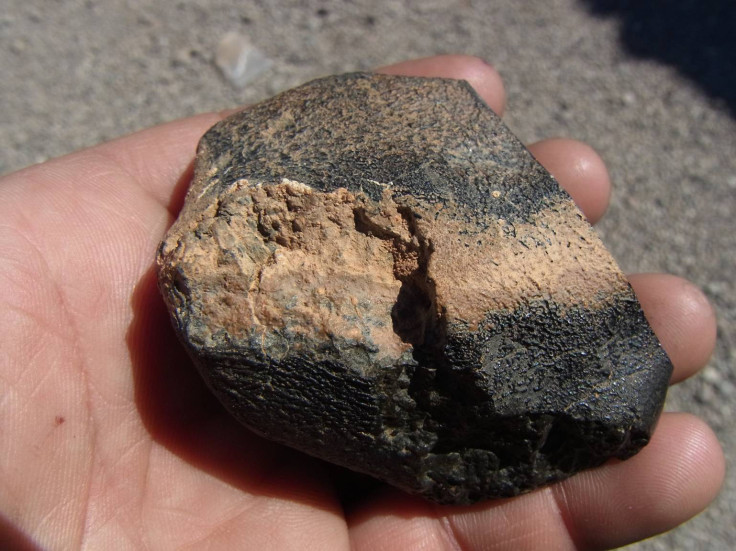African meteorite shows Mars was volcanically active for two billion years
Northwest Africa 7635 was discovered in 2012 and is one of 12 ejected from Mars following a major impact.
Mars was volcanically active for at least two billion years – almost half of the Red Planet's history. By analysing a meteorite discovered in Africa in 2012, researchers have been able to show Mars has some of the longest-lived volcanoes in the entire solar system, a finding that should shed light on the planet's evolution.
The 200g meteorite, Northwest Africa 7635, was found in Algeria. It was one of 12 other meteorites that had been ejected from Mars during a large impact over one million years ago. Known as a 'shergottie', it is a type of volcanic rock that indicates magma sources on Mars.
Previous analysis of the other meteorites had shown they aged between around 300 and 600 million years. However, a study of the 2012 meteorite has shown it is far, far older – having formed approximately 2.4 billion years ago.
In the study, published in the journal Science Advances, scientists led by Tom Lapen from the University of Houston analysed a 2g sample from the interior of the meteorite. Isotopic analysis showed it was from the same region of Mars as the other meteorites ejected during the same impact.

Because all the meteorites come from the same location on Mars, their vastly differing ages provide a view of how long the region was active volcanically. These findings fit with observational data of craters on Mars.
Recent high-resolution images of the surface of Mars show there were major volcanoes in the Elysium and Tharsis region, with repeated activation at the sites. These volcanoes appear to have formed earlier than 3.6 billion years ago, after which there were many eruptive episodes.
Lapen said: "We've confirmed the long-lived nature of volcanoes on Mars. If we look at the meteorite data, we can say a particular volcano or volcanic system was active for at least 2 billion years – probably longer. It confirms what people have observed just by looking at crater density on Mars. And they've known some of these volcanic centres are at least three billion years old. So our data confirms that."
© Copyright IBTimes 2025. All rights reserved.






















